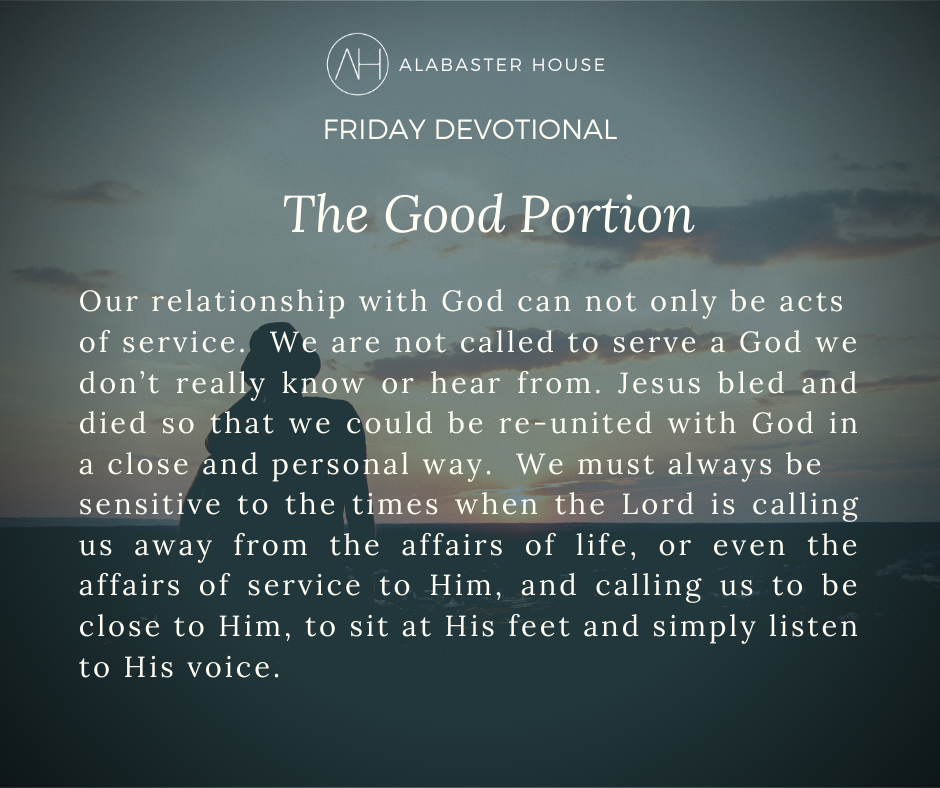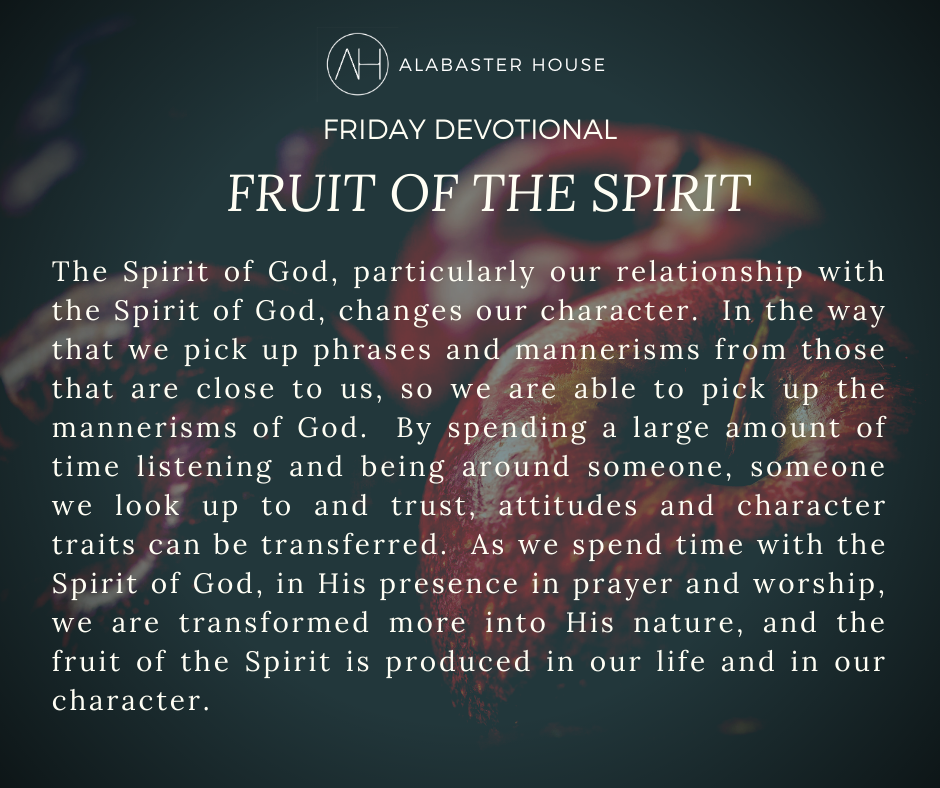Luke 10:38-42 The story of Mary and Martha presents a common conflict in perspective. Martha has invited Jesus into her home. While she is engaged, and distracted, in serving the many guests, her sister Mary sits at Jesus’ feet and listens to Him teach. Probably out of frustration, Martha appeals to Jesus to get Mary to help her to serve and host. Instead Jesus uses the moment to instruct Martha, addressing the many things that Martha is anxious and troubled about, and declaring that Mary had chosen ‘the good portion’.
Often we can be so involved in the busyness of life that we can miss out on the times that God is near. Jesus had chosen to enter Mary and Martha’s house, to spend time in their home. To Martha, this meant tasks of hospitality, and the chores that are required to honor a guest. To Mary, this meant spending time close to Jesus. Life can be a balancing act of relationships and responsibilities. Fulfilling our obligations and providing and taking care of our loved ones must be balanced with spending quality relationship time with those who are close to us. It is no different with the Lord. Although Martha was serving those who had entered her house, and probably in her mind was fulfilling her role, she had missed out on the fact that this was actually an appointed time to sit at Jesus’ feet and spend time close to Him. Our relationship with God can not only be acts of service. We are not called to serve a God we don’t really know or hear from. Jesus bled and died so that we could be re-united with God in a close and personal way. We must always be sensitive to the times when the Lord is calling us away from the affairs of life, or even the affairs of service to Him, and calling us to be close to Him, to sit at His feet and simply listen to His voice. This is the good portion, and it will not be denied to them who find it precious. Today, may the Lord call you to a closeness with Him, and may He share with you great and mighty things that you do not know!
0 Comments
1 Samuel 17:4 Throughout Israel’s history, they faced adversity and conflict from other nations. In spite of the promises that God had made them, they were not able to take the land without adversity. Once they had conquered ground, they often had to defend it against enemies who would try to take it from them. The Israelites had to be dependent on the Lord in order to succeed, and at times, just to survive. Life for the modern believer should be no different. Jesus told His disciples, ‘in this life you will have trouble’ but he told them not to worry because He had overcome the world.
During the course of life, it can be tempting to try to go through trials, and to fight battles, in our own strength. For those who don’t know Jesus, this is the default behavior. They succeed and fail based on their own effort. They overcome and achieve based on their talent, skill, work ethic, and stability. For the Israelites this would result in complete failure. God had brought them out of Egypt to a new place. Through His power, He had brought them to a place of dependence in Him. They were in a place that they could never have achieved by themselves, and they couldn’t defend it by themselves. When God raised up David to fight Goliath, He once again clearly showed that it was by His power that victory would be accomplished. David himself declares ‘the battle is the Lord’s.’ Although David had stood up to fight Goliath, he knew that it was by God’s power, not his own strength, that victory would be accomplished. Throughout the New Testament we are told to stand, and to resist. Our part is to make a decision to stand up in faith in the midst of turmoil. We are to resist the enemy. Once we make the stand, however, we must give the battle to the Lord. That means abandoning our own methods and plans, or trying to control the situation. Often, the mindset of having to deal with the problem ourselves is bringing anxiety and preventing the peace of God in the first place. As we release the battle to the Lord and worship Him, the peace and joy of the Lord return in the midst of all circumstance and we are able to see the deliverance of God. May you release the battle to the Lord, and may you see God rout the enemy! Gal. 5:22-23In Galatians, Paul describes the “Fruit” of the Spirit of God. In Context, Paul lists these characteristics as a description of walking in the Spirit. These traits, or fruit, are produced in the believer. Fruit is produced by trees, vines and plants. It is a result of a plant that is mature and healthy. Earlier in the passage, Paul characterizes the “works” of the flesh. Here, the words “works” and “fruit” can be interchanged. Paul is speaking not just of what the Spirit of God is like, but also what the result of walking IN the Spirit of God produces in our life, particularly in our character. As we spend time with the Spirit of God, and daily walk through our lives acting out of the Spirit of God, His fruit, or works, or characteristics, are produced.
Although we can work and focus on producing these character traits in our lives, it is a difficult journey to change our own character. The phrase “pulled themselves up by their own bootstraps” has an air of the tongue-in-cheek, because pulling yourself up by something that is attached to you is a futile effort. Changing your own character through force of will is a similar feat. The Spirit of God, particularly our relationship with the Spirit of God, changes our character. In the way that we pick up phrases and mannerisms from those that are close to us, so we are able to pick up the mannerisms of God. By spending a large amount of time listening and being around someone, someone we look up to and trust, attitudes and character traits can be transferred. As we spend time with the Spirit of God, in His presence in prayer and worship, we are transformed more into His nature, and the fruit of the Spirit is produced in our life and in our character. |
AuthorAlabaster House Archives
June 2021
Categories |
Proudly powered by Weebly




 RSS Feed
RSS Feed